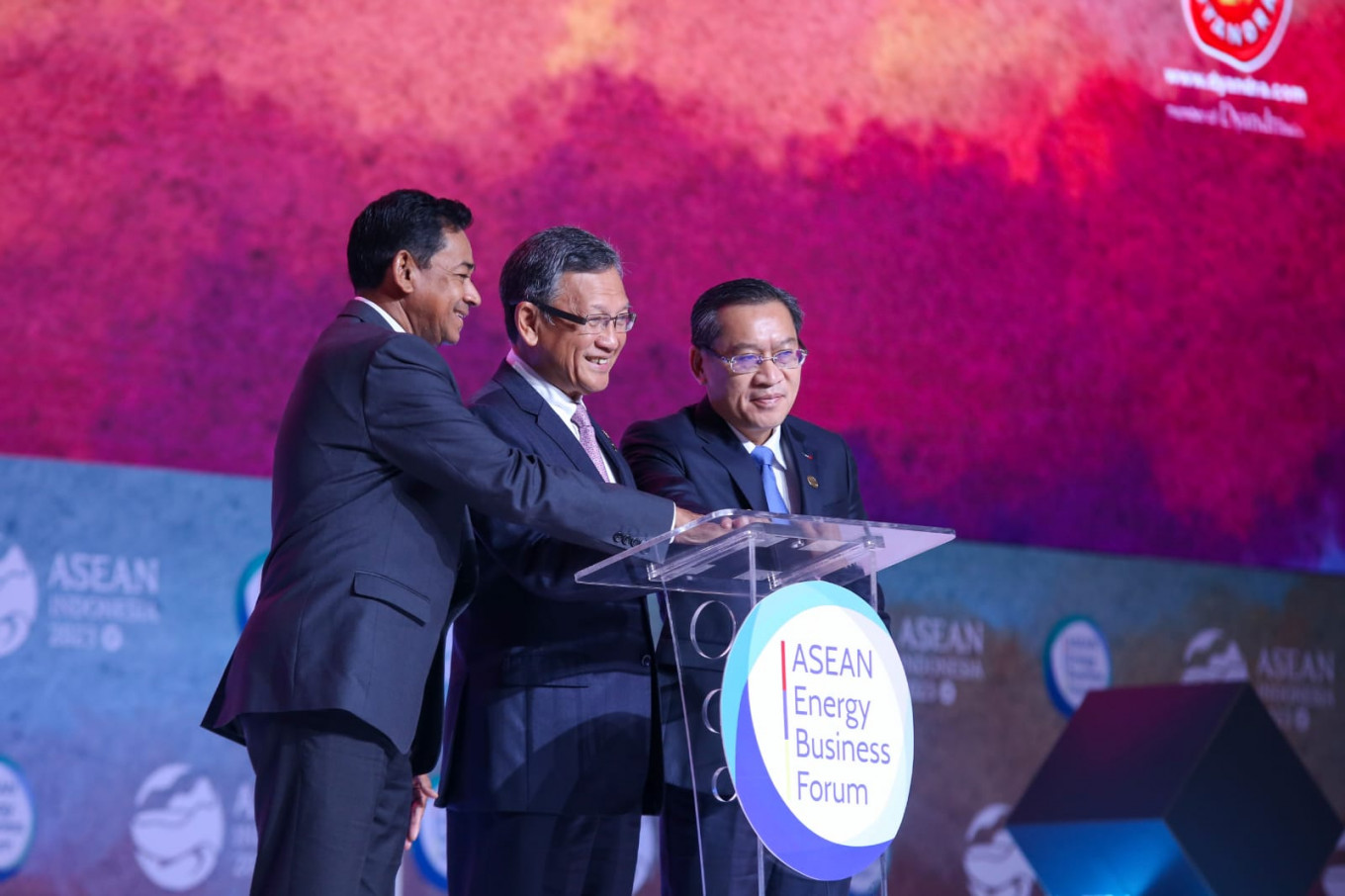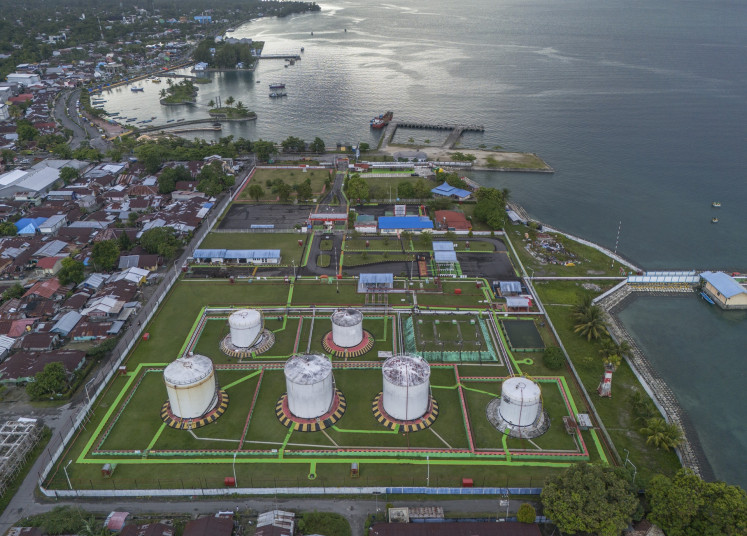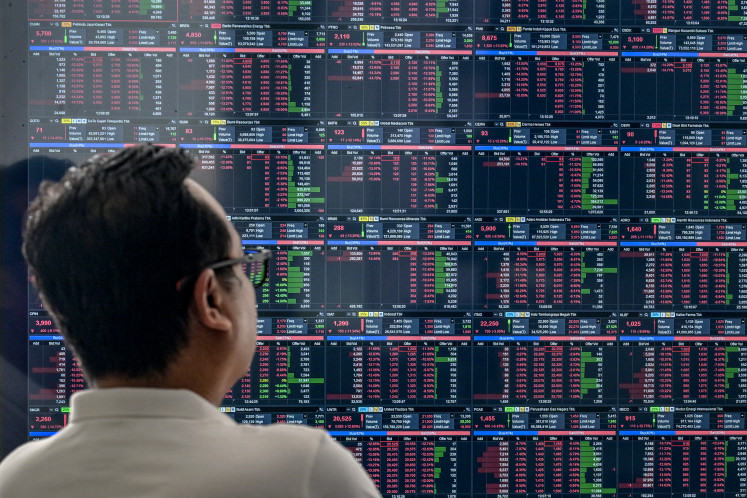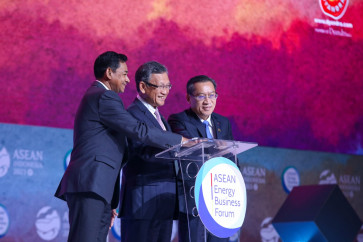Popular Reads
Top Results
Can't find what you're looking for?
View all search resultsPopular Reads
Top Results
Can't find what you're looking for?
View all search resultsASEAN struggles to align policies on critical minerals
ASEAN needs to devise a coordinated strategy on critical minerals if the member states are serious about helping each other develop their respective downstream industries, experts say.
Change text size
Gift Premium Articles
to Anyone
 Cambodia's Deputy Mining and Energy Minister Victor Jona (left), Indonesia’s Energy and Mineral Resources Minister Arifin Tasrif (center) and Laos' Energy and Mining Minister Phosay Sayasone (right) share the stage during the Joint Opening Ceremony of the 41st ASEAN Ministers on Energy Meeting (AMEM-41) and ASEAN Energy Business Forum (AEBF) 2023 in Bali on Aug. 24, 2023. (Energy and Mineral Resources Ministry/-)
Cambodia's Deputy Mining and Energy Minister Victor Jona (left), Indonesia’s Energy and Mineral Resources Minister Arifin Tasrif (center) and Laos' Energy and Mining Minister Phosay Sayasone (right) share the stage during the Joint Opening Ceremony of the 41st ASEAN Ministers on Energy Meeting (AMEM-41) and ASEAN Energy Business Forum (AEBF) 2023 in Bali on Aug. 24, 2023. (Energy and Mineral Resources Ministry/-)
A
SEAN needs to devise a coordinated strategy on critical minerals if the member states are serious about helping each other develop their respective downstream industries, experts say.
Putra Adhiguna, an energy analyst at the Institute of Energy Economics and Financial Analysis (IEEFA), said cooperation between ASEAN member states needed to begin with a common understanding of the definition of critical minerals, of each country’s vantage point and of the importance of shifting the region’s energy system to one built with mineral-intensive industries in mind.
Countries have come up with different definitions of critical minerals that take into account specific economic, geopolitical and resource sustainability considerations. Generally, a mineral is classified as critical if it is scarce and has high economic value.
“A wild card in the discussion is the increasing competition in the clean energy supply chain between China, the United States and other countries. The spillover effect of this dynamic would need to be anticipated by ASEAN countries,” Putra told The Jakarta Post on Wednesday.
The ASEAN countries have begun using domestic critical minerals and refined mineral products in advanced downstream industries, a report published by the Intergovernmental Forum on Mining, Minerals, Metals and Sustainable Development (IGF) said, as some of the countries already hold crucial positions in regional or international downstream supply chains.
Malaysia and Vietnam, for example, are the second- and third-largest solar panel manufacturers, respectively, according to the International Energy Agency (IEA), while Thailand is the world’s 11th-largest automotive manufacturer.
Singapore, on the other hand, is integrated into the corporate and research and development processes of several high-value segments in a variety of advanced technology industries, according to the IGF, and some countries of the region have come a long way in building electric vehicle (EV) ecosystems.


















